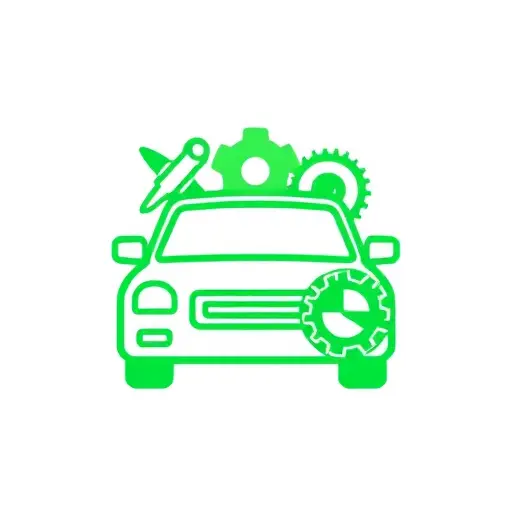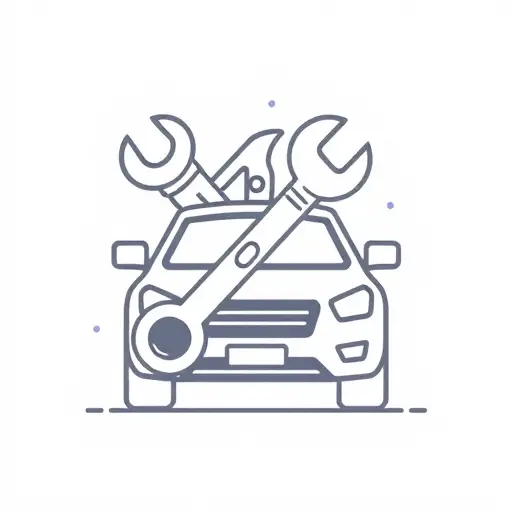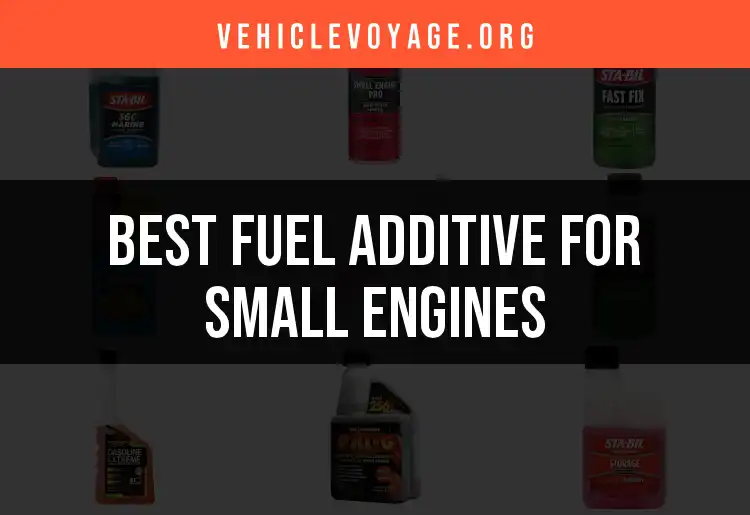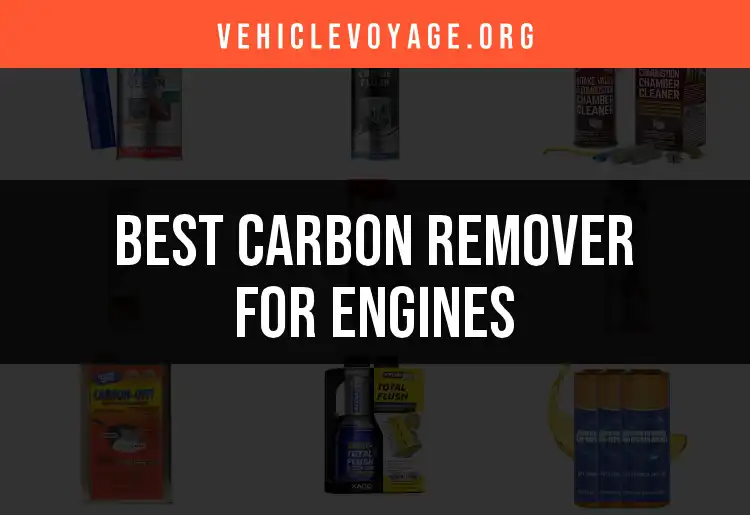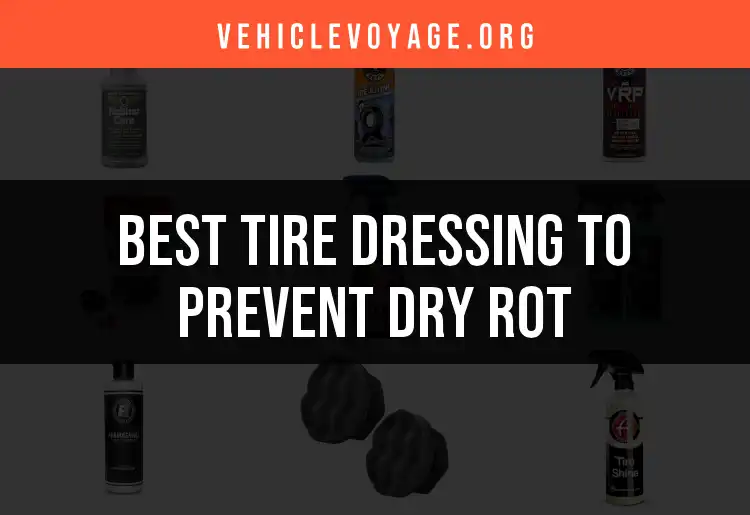Introduction to Vehicle Maintenance
Maintaining your vehicle is essential for its longevity, safety, and performance. Proper maintenance enhances your vehicle's reliability and can even improve fuel efficiency. Regular care can alert you to small problems before they escalate into expensive repairs. This comprehensive guide aims to provide a detailed understanding of various aspects of vehicle maintenance, so you are well-equipped to care for your automobile and keep it in peak condition.
By delving into the different categories of vehicle maintenance, such as engine care, electrical system upkeep, and specialized vehicle needs, you can create a tailored maintenance schedule. This will ensure that all components of your vehicle function harmoniously and contribute to a safer driving experience.
Engine Maintenance
Engine Oil
One of the most critical aspects of engine maintenance is ensuring that your vehicle uses the correct engine oil.
Types of Engine Oil
Understanding the differences between oil types can help you make informed decisions for your vehicle. Conventional oil is derived from crude oil and generally comes with a lower price tag, making it a popular choice for budget-conscious consumers. However, synthetic oil, created through chemical processes to provide superior performance characteristics, is often preferred for high-performance or new vehicles. Synthetic oils typically have better thermal and oxidative stability, which allows them to last longer and handle extreme temperature variations.
Choosing the Right Engine Oil
Using the correct oil isn't just about protection—it's also about ensuring optimal engine performance and improving fuel efficiency. For many modern vehicles, especially hybrids and those requiring high fuel economy, using 0W-16 oil can be particularly beneficial. This oil type flows easily in colder weather and maintains its viscosity at higher temperatures, which leads to better fuel economy and engine longevity. If you're looking for recommendations, check out the best 0W-16 oil to find options that fit your needs.
Oil Change Frequency
Regular oil changes are essential for maintaining engine health. The general rule of thumb is to change your oil every 5,000 to 7,500 miles, although this can vary depending on the vehicle and oil type. Neglecting to change your engine oil can lead to sludge buildup and engine wear, causing long-term damage that can compromise vehicle performance. Following your vehicle's manual or oil-life monitoring system can help ensure you stay on track with oil changes.
Oil Filters
An oil filter's primary role is to remove contaminants and debris from the engine oil.
Importance of Oil Filters
Over time, oil filters can become clogged, restricting oil flow, which can lead to increased engine wear and even catastrophic failures. Regularly replacing the oil filter alongside the oil is essential for maintaining a clean engine. A clean filter ensures the engine receives optimal lubrication and helps to trap harmful particles that could lead to long-term damage.
When to Replace Oil Filters
While it's commonly recommended to change oil filters with every oil change, being vigilant about signs of degradation (like decreased engine performance or strange noises) is vital for keeping your vehicle running smoothly. Always consult your vehicle's manual for specific recommendations regarding filter replacement.
Fuel System Maintenance
Ensuring that your fuel system is in good working order is equally important to maintaining overall engine performance.
Fuel Filter
Similar to oil filters, fuel filters serve a crucial purpose by ensuring that the fuel entering the engine is clean. A clogged fuel filter can lead to poor engine performance, causing issues like reduced power, rough idling, and even stalling. Replacing the fuel filter regularly can prevent these problems and prolong your fuel system's life.
Fuel Injector Cleaning
Fuel injectors maintain the proper spray pattern for optimal combustion, but they can accumulate deposits over time. Dirty injectors can significantly decrease fuel efficiency and performance. Utilizing fuel system cleaners can help restore injectors to their optimal condition, or for more severe cases, a professional cleaning service may be necessary. Maintaining your fuel system is just one more way to keep your vehicle functioning smoothly.
Electrical System Maintenance
Battery Care
Keeping your vehicle's battery in good condition is vital for reliable performance. A functioning battery provides the necessary power to start your engine and powers many electrical components in your vehicle.
Checking Battery Health
Regularly inspecting your battery for signs of corrosion or loose connections can prevent starting issues. Corroded terminals can impede power flow and lead to electrical failures. You can use a multimeter to check your battery's voltage. A healthy battery should read between 12.4 and 12.7 volts, while anything below that might indicate the need for charging or replacement. Understanding how to maintain your battery can save you costly tow bills down the road.
Jump Starting Techniques
In case of a dead battery, knowing how to jump-start your vehicle safely is essential. Make sure you understand the proper connection sequence and required safety precautions to avoid damaging either vehicle. Familiarizing yourself with jump-starting techniques will ensure that you're prepared for unexpected situations, keeping you mobile and reducing the likelihood of reminders for future battery replacements.
Heating & Cooling Systems
A well-functioning heating and cooling system is critical, especially in extreme weather conditions. It affects not only comfort but safety as well.
Importance of Cabin Heaters
Cabin heaters provide valuable comfort during cold months and contribute significantly to defrosting windows for safe visibility while driving. A malfunctioning heater can lead to a less enjoyable driving experience and can even be a safety hazard if not addressed.
12V Car Heater Options
For those living in areas with harsh winters, investing in a reliable 12V car heater can provide instant warmth and comfort on frigid mornings. These portable heaters can plug directly into your car's power outlet, offering immediate benefits and enhancing overall comfort during your winter commutes.
Dashboard Indicators and Troubleshooting
Understanding your dashboard indicators is essential for quick responses to potential issues with your vehicle.
Dashboard warning lights communicate vital information about your vehicle's health. Ignoring these signals could lead to costly repairs or unsafe driving conditions. Paying close attention to warning lights and understanding their meanings can make a significant difference in vehicle performance and safety. Be proactive about addressing any alerts that pop up to prevent breakdowns or extensive repairs.
Transmission and Drivetrain Maintenance
Gear Oils
Proper lubrication of your vehicle's transmission and drivetrain components directly impacts their functionality.
Understanding Gear Oil Types
Different gear oils have various specifications suited to specific vehicle needs. Using the wrong type of gear oil can lead to decreased performance and even potential damage to components. For heavy-duty vehicles, selecting a high-quality gear oil is a crucial part of vehicle maintenance.
Benefits of Synthetic Gear Oils
Synthetic gear oils often outperform conventional oils, especially under extreme temperatures or high-stress conditions. They provide superior wear protection and can help extend the life of your drivetrain components. Being proactive about your gear oil choice contributes significantly to the reliability and performance of your vehicle.
Recommendations for 75W-140 Synthetic Gear Oil
If your vehicle requires heavy-duty lubrication for demanding tasks, consider using 75W-140 synthetic gear oil. This oil type is engineered to provide reduced friction and improved performance under heavy loads, making it vital for drivers who frequently tow or haul.
Transmission Fluid Change
Your transmission fluid requires regular checks and possible replacements to ensure smooth shifting.
Signs You Need a Fluid Change
Indicators of degraded transmission fluid include strange noises, difficulty shifting gears, or a burning smell. Not addressing these will lead to increased wear on internal components, which can eventually spawn costly repairs. Regularly checking and replacing transmission fluid can prevent such catastrophic failures.
Chassis and Suspension Maintenance
Tire Maintenance
Proper tire maintenance directly relates to vehicle performance and safety, impacting fuel efficiency and driving comfort.
Tire Pressure and Tread Depth
Keeping an eye on tire pressures is crucial for optimal performance. Under-inflated tires can lead to faster tread wear and increased fuel consumption, while over-inflation can reduce traction. Regularly checking your tire pressure, ideally once a month, is an easy yet essential practice.
Additionally, monitoring tread depth is crucial for ensuring sufficient traction. Tires with inadequate tread can compromise handling and increase the risk of hydroplaning in wet conditions. Utilizing the penny test can help you gauge tread depth: insert a penny into your tire grooves—if you can see all of Lincoln’s head, it's time to replace your tires.
Brake System
A reliable brake system is paramount for safe driving.
Brake Pad Replacement
Brake pads naturally wear down over time due to friction, and it is essential to replace them when they become too thin. Signs indicating that brake pads may need to be replaced include squeaking, grinding noises, or a soft brake pedal feel. Addressing brake pad wear helps maintain braking efficiency and ensures safety.
Signs of Brake System Issues
Abnormal noises or vibrations when braking should always prompt an immediate inspection. If you notice any unusual sensations or dashboard indicators related to the brake system, don’t hesitate to schedule an inspection. Delaying this can lead to severe safety hazards while driving.
Suspension Components
The suspension system is critical for vehicle stability and ride comfort.
Checking for Wear and Damage
Inspect suspension components regularly for signs of wear, such as leaks, cracks, or rust. A well-maintained suspension ensures better handling and a smoother ride. If you notice your vehicle pulling to one side, experiencing excessive bouncing, or uneven tire wear, it may be time for a thorough inspection.
Exterior and Interior Maintenance
Vehicle Wash and Wax
Keeping your vehicle clean is essential, as it protects the paint and finishes from damage caused by dirt and environmental factors.
Importance of Regular Washing
Regular washing removes contaminants such as road salt, grime, and dirt that can damage your car's exterior over time. In addition to aesthetic appeal, cleaning your vehicle helps prevent long-term damage, such as rust and oxidation. Make it a habit to wash your car frequently, especially in regions with significant exposure to salt or dirt.
Car Wax Remover Products
When it comes time to wax your vehicle, using the right products can simplify the process and enhance the coat's durability. A quality car wax remover will ensure that you thoroughly clean the surface before applying wax, maximizing both protection and shine.
Protective Accessories
Utilizing accessories can help minimize wear and tear on your vehicle.
Car Door Sill Protectors
Consider installing car door sill protectors to safeguard against scratches and scuffs that can accumulate from daily use. These protectors offer a barrier that helps maintain your vehicle's aesthetics and resale value.
Sun Protection Solutions
Using efficient solutions, such as car window sun shades, can provide substantial protection for your vehicle's interior. Sun shades prevent UV rays from tarnishing your upholstery and dashboard, ensuring a cooler and more comfortable ride.
Organizing Interior Space
Maximizing your vehicle's interior space can enhance convenience and focus while driving.
Car Visor Organizers
Utilizing car visor organizers keeps your essential items readily accessible and prevents clutter on the dashboard. An organized interior aids in reducing distractions while driving, allowing for a safer and more enjoyable experience.
Seat Covers
Investing in quality seat covers prolongs the life of your vehicle’s upholstery. You can find specialized options such as seat covers for Jeep Liberty or seat covers for Mini Cooper that not only provide protection from spills and wear but also enhance the overall aesthetic appeal of your car.
Seasonal and Environmental Maintenance
Winter Preparations
Cold weather can create unique challenges for vehicles.
Using a 12V Car Heater
For those in colder climates, a reliable 12V car heater can significantly improve comfort and convenience on chilly mornings. These heaters plug into your car's power outlet and can provide warmth quickly, allowing you to defrost your windshield and enjoy comfortable cabin temperatures right away.
Importance of Moisture Absorbers
To combat rising humidity levels inside your vehicle during winter months, consider using a moisture absorber. These devices can help prevent mold and mildew from developing, ensuring a pleasant environment throughout the season.
Summer Care
With summer heat comes a need for different care practices.
Sun Shields and Covers
Parking in shaded areas or utilizing high-quality sun shields can protect your dashboard and upholstery from excessive sun exposure. Sun shields reflect sunlight, helping to maintain a cooler temperature inside, which can enhance your comfort during hot months and prevent wear on your vehicle's interior materials.
Outdoor Car Cover for Mazda Miata
For owners of a Mazda Miata or similar vehicles, investing in an outdoor car cover for Mazda Miata offers substantial protection from UV rays and environmental debris. A good cover can preserve both the paint and interior, ensuring your vehicle remains in top condition despite adverse weather conditions.
Maintenance for Specialty Vehicles
Boats and Trailers
Specialty vehicles have unique maintenance demands, especially since they may be exposed to different operating environments.
Boat Trailer Guides Importance
Proper maintenance techniques for boat trailers ensure safe transport during launches and retrievals. Investing in quality boat trailer guides can make this process smoother and more straightforward. These guides enhance your launch experience and minimize the risk of damaging your boat or trailer.
Greasing Trailer Hitch Balls
Regularly greasing your trailer hitch ball is crucial for preventing rust and ensuring smooth operations when connecting and disconnecting your trailer. For the best results, consult our guide on the best grease for trailer hitch ball, which will help you minimize wear and extend the lifespan of the components.
Leisure Vehicles
For recreational vehicles, a consistent maintenance routine can maximize every adventure.
Best Oil for Yamaha Golf Cart
Using the correct oil type in your Yamaha golf cart is essential for optimal engine performance. Consider reading about the best oil for Yamaha golf cart to ensure you are using the right products that benefit longevity and efficiency.
Miata Car Covers
To protect your Miata from dust, dirt, and sun damage, investing in a high-quality Miata car cover can safeguard your investment. Quality covers are designed to fit snugly and address the unique features of your vehicle, helping to maintain its pristine appearance.
Diagnostic and Maintenance Tools
Scan Tools
Effective diagnostics can simplify maintenance and save money on repairs.
Importance of Diagnostic Tools
Having reliable diagnostic tools allows you to read error codes and assess issues before they escalate into costly repairs. By investing in good equipment, you'll gain insights into your car’s functioning, allowing for timely interventions and preventive measures. Regular diagnostics can extend your vehicle's lifespan and improve performance by preemptively addressing issues.
Budget Bi-Directional Scan Tool Options
For those on a budget, you can find appealing options for a budget bi-directional scan tool. These tools provide reliable performance and can help you with various diagnostic functions without breaking the bank. Understanding how to leverage these tools ensures both efficiency and effectiveness in your vehicle maintenance endeavors.
Conclusion
Maintaining your vehicle is an ongoing responsibility that significantly impacts its performance, safety, and overall longevity. By exploring various aspects of vehicle maintenance discussed in this guide, you can develop a solid maintenance routine that meets your specific needs.
Investing the time and effort in preventive care today will save you from potential breakdowns in the future, promoting a smoother driving experience and extending the life of your vehicle significantly. Feel free to return to specific sections for comprehensive guidance, and consult your vehicle's owner manual whenever necessary for tailored information. Your commitment to how you care for your vehicle translates into reliability and satisfaction on the road ahead.


